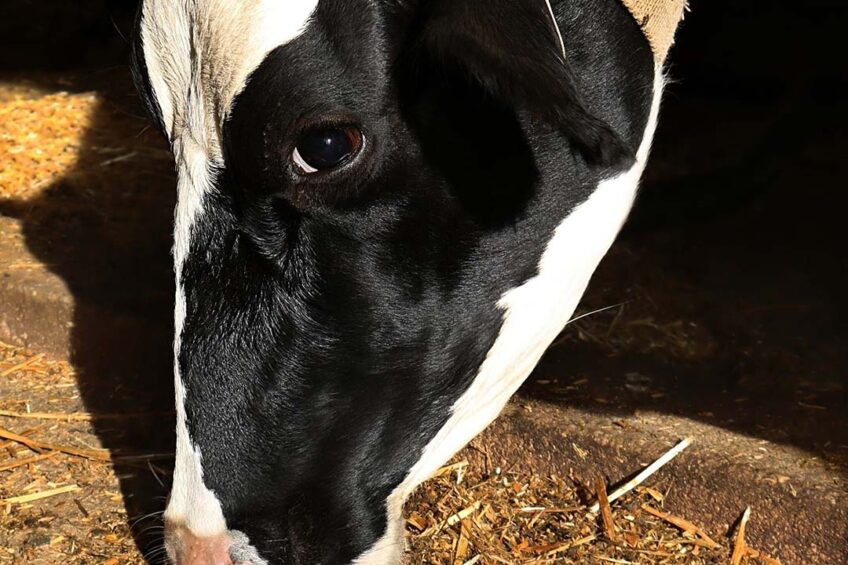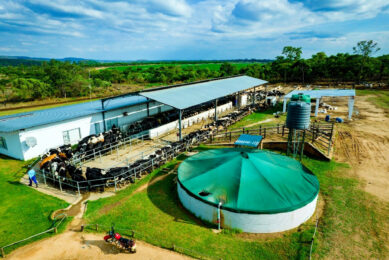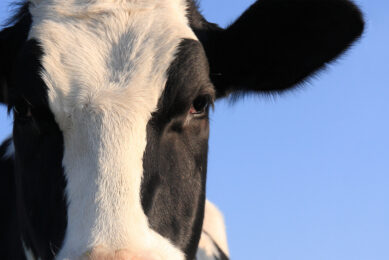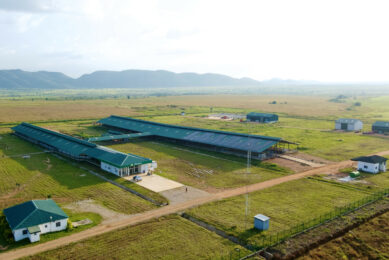First genomic index for crossbred cows boosting dairy in Africa

Work by scientists and farmers in Scotland to breed more productive dairy cows is paying off both at home and in Africa.
Research by Scotland’s Rural College (SRUC) professors Raphael Mrode and Mike Coffey has enabled them to identify economically important traits and implement genomic approaches that lead to healthier cows with higher milk production, and in turn allow farmers to breed smaller cows which require less feed and land to graze on but produce more milk.
The research, which is supported by the Bill and Melinda Gates Foundation, shows how cows can be used to help communities thrive in both Africa and the UK.
Dairy farmer Scotland
Rory Christie, who farms near Port William, Dumfries and Galloway in South West Scotland, has been one to benefit from the initiative. He is one of 4 farmers in Scotland working with Scotland’s Rural College to create the first dairy crossbreeding index as part of the Fast Breeders Project.
“Since we started the project we are doing about a thousand litres per cow per year extra,” he said.
They have established a Fast Breeder Index, after genotyping 9,000 animals from data taken from their 4 pasture-based dairy farms. The genomic index produced is currently based on milk fat, protein and somatic cell count data, while liveweight and calving interval information is being added this year. The aim of the project, which began in 2018, was to use the farm data to enable precision genomic selection of crossbred cows to maximise efficiency and health.
To breed from the top 25%, the project carried out DNA tests to create an SNP key – a phrase used to describe the reference population of animals that have been genotyped and have good quality phenotypes. They then compared the phenotypes to the 50,000 SNPs on the genotype to create a prediction equation called the SNP key – the largest for crossbred dairy cattle in the UK.
Dairy in Africa
The success of the genetics research has sparked the idea that it could be used to solve food shortages in Africa. Since the 1950s, dairy cows have been imported into Kenya to produce milk but very little data has been kept about breed types or production potential.
Professor Mrode, who also works for the International Livestock Research Institute, joined forces with colleagues in Kenya and the Bill and Melinda Gates Foundation to form and implement the African Dairy Genetic Gains programme and gather data about the cows. And the project has enabled farmers across Africa to produce more milk from hybrid cows and move beyond subsistence farming into developing businesses.
“The application of digital tools and genomic approaches meant that the major hindrances for selective breeding for improved productivity and efficiency could be overcome in smallholder farms in East Africa,” said Mrode.
Coffey said: “It’s really rewarding to see research from Scotland having an impact both at home and abroad. Smaller cows producing more milk is a good outcome for farmers, consumers and the planet.”
Join 13,000+ subscribers
Subscribe to our newsletter to stay updated about all the need-to-know content in the dairy sector, two times a week.










